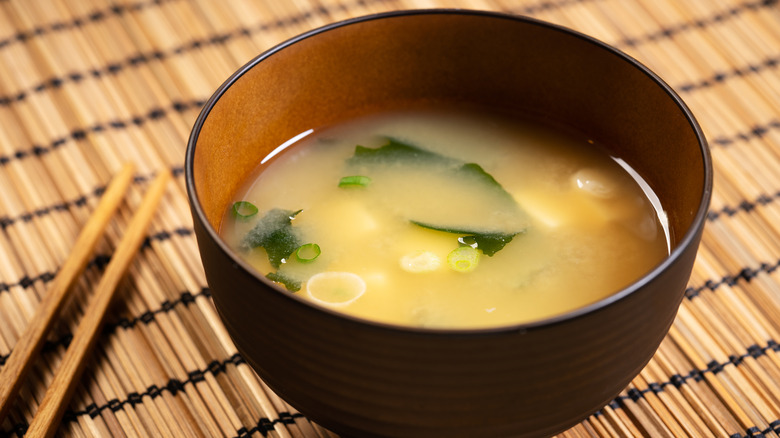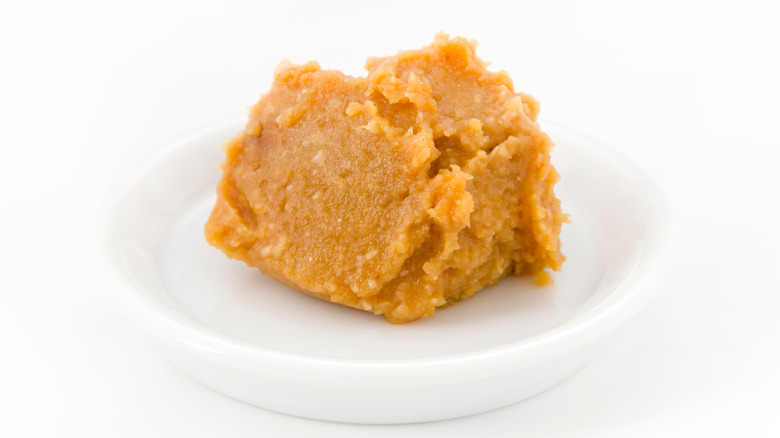What Eating Miso Does For Your Body
If you've sat down to a meal in a Japanese restaurant, there is a good chance that you've had miso. The silky broth studded with tofu and accented with nori is a staple appetizer. And fans of ramen will happily talk about the rich favor of a bowl made with miso broth.
AllRecipes tells us that miso is a fermented paste usually made with soybeans, though some variations use different bean varieties. It's a rich, salty paste that is usually mixed with liquids to form the base of many popular Japanese dishes. It can be used on everything from noodles to vegetables to meat. And, of course, in soup broths.
Miso is delicious. But it can also have deeply positive effects on your body. And while soy itself may have its issues for some people, the fermentation process that produces miso changes the beans on a chemical level. This means that miso affects our bodies differently than non-fermented soy. And some of those effects make it more than worth incorporating miso into your diet, even if it's completely new to your pantry.
Flavorful cancer fighter
The early 2000s were busy years for miso. Several studies came out around the same time confirming a link between regular miso consumption and a huge decrease in breast cancer risk. One specific paper published in the International Journal of Cancer in 2005 found that the risk reduction could be as high as 50%.
Another 2013 study published in the Journal of Toxicologic Pathology found that rats and mice who regularly ate miso had smaller tumors in both their livers and their lungs. The results haven't been replicated with humans yet, so researchers are not sure if human bodies will react the same way. There is some hope that they will, however, because rodent bodies and human bodies react similarly to the sodium content in miso.
As many miso critics are quick to point out, just one ounce of the stuff has more than 40% of your daily recommended intake of sodium (via Self). But many studies, including the 2013 study on rat tumors, found the regular intake of miso does not lead to higher blood pressure.
Researchers theorize that this is due to miso's anti-inflammatory effects, as noted in a 2016 paper published through the American Gastroenterological Association. The study found that the fermentation process developed a probiotic in the paste, specifically the A. oryzae strain. It is believed that, despite miso's high sodium content, the probiotic nature of the paste helps avoid blood pressure issues while the paste as a whole delivers the rest of the benefits. This makes miso a wonderful cancer-fighting condiment and definitely worth adding to your ingredients list.


